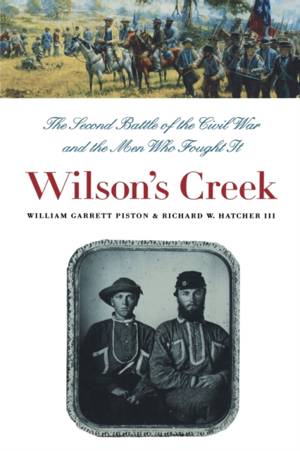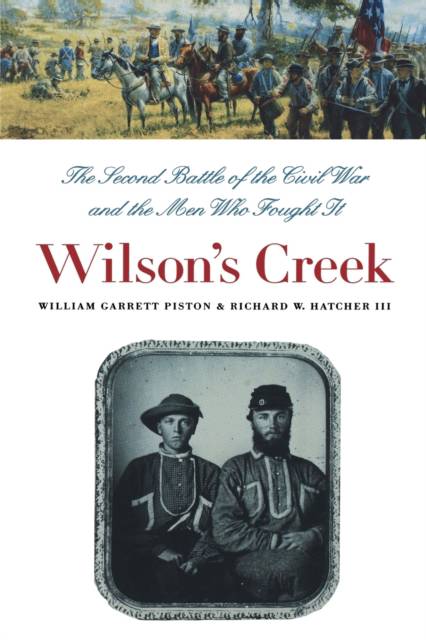
- Retrait gratuit dans votre magasin Club
- 7.000.000 titres dans notre catalogue
- Payer en toute sécurité
- Toujours un magasin près de chez vous
- Retrait gratuit dans votre magasin Club
- 7.000.0000 titres dans notre catalogue
- Payer en toute sécurité
- Toujours un magasin près de chez vous
Wilson's Creek
The Second Battle of the Civil War and the Men Who Fought It
William Garrett Piston, Richard W Hatcher
38,45 €
+ 76 points
Description
In the summer of 1861, Americans were preoccupied by the question of which states would join the secession movement and which would remain loyal to the Union. This question was most fractious in the border states of Maryland, Kentucky, and Missouri. In Missouri, it was largely settled at Wilson's Creek on August 10, 1861, in a contest that is rightly considered the second major battle of the Civil War.
In providing the first in-depth narrative and analysis of this important but largely overlooked battle, William Piston and Richard Hatcher combine a traditional military study of the fighting at Wilson's Creek with an innovative social analysis of the soldiers who participated and the communities that supported them. In particular, they highlight the importance of the soldiers' sense of corporate honor -- the desire to uphold the reputation of their hometowns -- as a powerful motivator for enlistment, a source of sustenance during the campaign, and a lens through which soldiers evaluated their performance in battle.
In providing the first in-depth narrative and analysis of this important but largely overlooked battle, William Piston and Richard Hatcher combine a traditional military study of the fighting at Wilson's Creek with an innovative social analysis of the soldiers who participated and the communities that supported them. In particular, they highlight the importance of the soldiers' sense of corporate honor -- the desire to uphold the reputation of their hometowns -- as a powerful motivator for enlistment, a source of sustenance during the campaign, and a lens through which soldiers evaluated their performance in battle.
Spécifications
Parties prenantes
- Auteur(s) :
- Editeur:
Contenu
- Nombre de pages :
- 432
- Langue:
- Anglais
- Collection :
Caractéristiques
- EAN:
- 9780807855751
- Date de parution :
- 30-08-04
- Format:
- Livre broché
- Format numérique:
- Trade paperback (VS)
- Dimensions :
- 146 mm x 234 mm
- Poids :
- 589 g

Les avis
Nous publions uniquement les avis qui respectent les conditions requises. Consultez nos conditions pour les avis.






